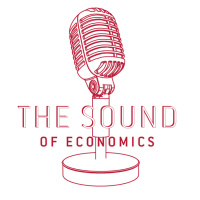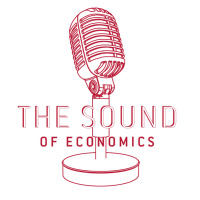Sinopsis
Bruegel is the European think tank working in the field of international economics. Established in 2005, Bruegel is independent and non-doctrinal. It seeks to contribute to European and global economic policy-making through open, fact-based and policy-relevant research, analysis and debate.
Episodios
-
Rebooting Europe: a framework for post COVID-19 economic recovery
15/05/2020 Duración: 56minCOVID-19 has triggered a severe recession and policymakers in European Union countries are providing generous, largely indiscriminate, support to companies. As the recession gets deeper, a more comprehensive strategy is needed. This should be based on four principles: viability of supported entities, fairness, achieving societal goals, and giving society a share in future profits. The effort should be structured around equity and recovery funds with borrowing at EU level. In this episode we discuss the proposal for a recovery plan outlined in a recent paper by Julia Anderson, Simone Tagliapietra and Guntram Wolff which can be read here https://www.bruegel.org/2020/05/rebooting-europe-a-framework-for-a-post-covid-19-economic-recovery/ Participating to this episode: Maria Demertzis, Deputy Director, Bruegel Giuseppe Porcaro, Head of Outreach and Governance, Bruegel Simone Tagliapietra, Research Fellow, Bruegel Guntram Wolff, Director, Bruegel
-
S6: China’s economy after COVID-19
06/05/2020 Duración: 01h22sThe first country to be hit by the current pandemic, China has been at the forefront of the fight against COVID-19. What have been its impacts on the Chinese economy? What does it represent, more broadly, to the global economy? Are global supply chains really starting to be put into question? Today, Giuseppe Porcaro is joined by Alicia García-Herrero and Yiping Huang, Professor of Economics and Finance at the Peking University. This podcast is a member of the Europod network.
-
S6: An analysis of the German Constitutional Court ruling on the ECB QE programme
05/05/2020 Duración: 50minThe German Constitutional called today on the ECB to justify its bond-buying program. What does today's ruling of the German Constitutional Court mean for the ECB's QE program? Could such a decision open a precedent when it comes to contesting EU law? Today, Giuseppe Porcaro and Guntram Wolff are joined by Franz Mayer, chair of Public Law at the University of Belefield, to analyse the German Constitutional Court's ruling. This podcast is a member of the Europod network.
-
S6: The impact of Covid-19 on emerging markets with Barry Eichengreen
29/04/2020 Duración: 47minWithout a robust healthcare system and lack of medical equipment, emerging market economies are vulnerable to the current COVID-19 pandemic. How can developed countries help tackle the issue? Is international cooperation more needed than ever? This week, Giuseppe Porcaro and Guntram Wolff are joined by Barry Eichengreen to discuss the impact of COVID-19 on emerging markets.
-
S6: Post-Council commentary
24/04/2020 Duración: 54minOn April 23, EU leaders met virtually to try to come to an agreement for a common European response to the COVID-19 pandemic. What were the measures taken? Will they be sufficient? Did Europe come together for a coordinated response to the crisis? Or did the meeting further highlight the cracks between member states? This week, Guntram Wolff and Giuseppe Porcaro are joined by Maria Demertzis and André Sapir to comment on the EU Council meeting. This podcast is a member of the Europod network.
-
Exiting the great lockdown?
17/04/2020 Duración: 52minIn this episode of The Sound of Economics Live, we discuss European coordination, national responses, and local effects in moving on the next phase of containment of the COVID-19 pandemic Maria Demertzis, Deputy Director Thomas Hale, Associate Professor in Global Public Policy, Blavatnik School of Government; Fellow of St Antony's College, University of Oxford Jean Pisani-Ferry, Senior Fellow Giuseppe Porcaro, Head of Outreach and Governance Additional speakers to be confirmed
-
S6: Did the Eurogroup save the day?
10/04/2020 Duración: 53minAfter its longest meeting ever, the Eurogroup reached an agreement yesterday evening. What does the agreement say? What does it mean in terms of the emergency reaction to the economic fallout of the COVID-19 pandemic? What does it mean, more broadly, for the future of Europe? This week, Giuseppe Porcaro is joined by Maria Demertzis, André Sapir and Guntram Wolff to discuss whether the Eurogroup can save the day. This podcast is a member of the Europod network. The podcast started by the participants giving their view on the deal that was closed last night by the Eurogroup. Guntram Wolff noted that is was good to have a deal, even if it is small in his view. André Sapir also expressed reserved satisfaction for the deal. He was however not surprised, as more could only come from the heads of state and that it is part of the Eurogroup’s habits to increase firepower over time. Maria Demertzis found it is surprising that the longest ever Eurogroup meeting led to such a small result and though this was a bad sig
-
S6: Mythbusters: debunking economic myths
03/04/2020 Duración: 27minEconomics seems to be full of myths that are hard to debunk. Will robots take our jobs? Are trade deficits bad? Is China such a big economy simply because of the size of its population? This week, Nicholas Barrett, Maria Demertzis, Marta Domínguez-Jímenez and Niclas Poitiers put on the detective cap and become Bruegel's own economic mythbusters. Disclaimer: this podcast was recorded on the 3rd of March 2020, before the COVID-19 lockdown was put in place in Europe and the US. Hence, some parts of it are no longer applicable. This podcast is a member of the Europod network.
-
S6: The macroeconomic policy response to the COVID-19 crisis
31/03/2020 Duración: 50minFrom the European Stability Mechanism (ESM) to "coronabonds", the EU seems to be struggling to find an appropriate mechanism to tackle the economic crisis created by the COVID-19 pandemic. What is really the best option? And how do we ensure that, once the pandemic is over, we return to sustainable debt levels and competitive economies? This week, Giuseppe Porcaro is joined by Lucrezia Reichlin, professor of Economics at the London Business School, Grégory Claeys and Guntram Wolff to discuss the macroeconomic policy response to the COVID-19 crisis. This podcast is a member of the EuroPod network.
-
S6: Banks and loan losses in the pandemic turmoil
25/03/2020 Duración: 54minThe current pandemic is shaking the financial system. How can banks react ? Is a consolidation of the financial system in Europe needed in order to respond to this crisis ? Will our economies suffer from this pandemic as much as they did in 2008 ? This week, Giuseppe Porcaro is joined live by Guntram Wolff and Nicolas Véron to discuss banks and loan losses in the pandemic turmoil. This podcast is a member of the EuroPod network.
-
S6: How can the EU prevent our economies from shutting down?
18/03/2020 Duración: 32minFrom flights cancelled and restaurants closed to companies either slowing or stopping their production, COVID-19 is shutting our economies down. How can the EU reboot them? What should be our fiscal and monetary response to the pandemic? Will our economic system ever be the same once everything is over? This week, Guntram Wolff is joined by Jean Pisani-Ferry and Maria Demertzis to discuss the EU's response to the coronavirus. This podcast is a member of the EuroPod network. Disclaimer: due to the current circumstances, this episode was recorded remotely. Therefore, the sound quality isn't the same as in our previous episodes.
-
S6: Where are the women in economics?
08/03/2020 Duración: 31minThe field of economics, like many others, seems to be biased towards men. How are women disadvantaged? Makfire Alija and Katja Knezevic join Nicholas Barrett and Niclas Poitiers to discuss the systematic hurdles.
-
S6: Coronavirus: the economic prognosis
06/03/2020 Duración: 27minThe coronavirus is going to hit the global economy hard, but how hard? What can policymakers plan for the months ahead? Nicholas Barrett asks Guntram Wolff and Maria Demertzis about economic symptoms and treatments
-
S6: The European Green Deal rules
05/03/2020 Duración: 22minWhen it comes to global carbon emission is a tax the best form of defence? To make the European Green Deal work, the EU is considering a levy on carbon-intensive goods manufactured beyond its borders. But will a carbon border tax spawn a massive bureaucracy and lead to accusations of protectionism? To find out, Nicholas Barrett talked to Georg Zachmann and Ben McWilliams from Bruegel and Gabriel Felbermayr, President of the Kiel Institute for the World Economy
-
S6: Is the EU a superpower?
03/03/2020 Duración: 33minAs China and the US battle for global supremacy, the EU seems to remain in the shadows. But what if the EU had been shaping the world economy all along without anybody noticing? Could its soft power be strong enough to shape regulations all over the world? What impact does such influence have over its own economy? This week, Giuseppe Porcaro and Guntram Wolff are joined live by Ashoka Mody, Professor in International Economic Policy at the Princeton University, and Anu Bradford, author of the book "The Brussels Effect: How the European Union rules the world".
-
S6: Will globalisation survive the Coronavirus?
28/02/2020 Duración: 44minAs the Coronavirus continues to spread, schools have closed, flights have been canceled and entire towns have been quarantined. Most of those who contract the virus will undoubtedly survive, but can the same be said for globalisation? Is it time for economists to question the virtue of international supply chains? Should policymakers in the west be thinking twice about our material dependency on Chinese manufacturing? And is an economic contagion as dangerous as its medical equivalent? To discuss this, Nicholas Barrett is joined by Nicolas Veron and Niclas Poitiers, and down the line from Spain, by Alicia Garcia Herrero.
-
S6: Can the European Green Deal kill the single market?
25/02/2020 Duración: 19minThe European Green Deal is one of the landmarks of Ursula von der Leyen's Commission. But, without an ambitious investment behind it, what could be its potential implications for the EU? Could it go as far as to threaten the EU's single market? This week, Renew Europe's vice-president, MEP Luis Garicano, joins Guntram Wolff and Maria Demertzis to discuss not only the European Green Deal but also the EU Budget and the Banking Union. Disclaimer: this episode was recorded on the 20th of February, before Bruegel hosted the event "The Ressurection of the European Banking Union".
-
S6: From Brussels with love? Russia's economic dependence on the EU
19/02/2020 Duración: 22minDespite the political antagonism, the EU and Russia are not only geographically, but also economically, reliant on each other: European houses are heated using Russian natural gas and Russia is highly dependent on European investment. Should the EU develop closer political ties with Russia? How much leverage does the EU have when dealing with the Kremlin? This week, Nicholas Barrett is joined by Niclas Poitiers and Marta Domínguez-Jímenez to discuss European foreign direct investment in Russia.
-
S6: Can hybrid threats disrupt the financial system?
17/02/2020 Duración: 20minFrom cashless payments to digital banking, finance has become intangible and global. But, while speed and convenience have made our international transactions easier, have we become more vulnerable? How can the EU respond to the increased risk of hybrid threats? This week, Nicholas Barrett is joined by Jukka Savolainen, Director of Community of Interest “Vulnerabilities and Resilience” at the European Centre of Excellence for Countering Hybrid Threats, and Maria Demertzis, to discuss the risks that hybrid threats pose to the financial system.
-
S6: The EU's plan to catch up on artificial intelligence
14/02/2020 Duración: 29minWhile the US and China have been setting the pace when it comes to Artificial Intelligence, the European Union seems to be lagging behind. What are the Commission's plans to finally catch up? Will AI increase the gap between big and small companies? Nicholas Barrett asked Julia Anderson and Guntram Wolff

































